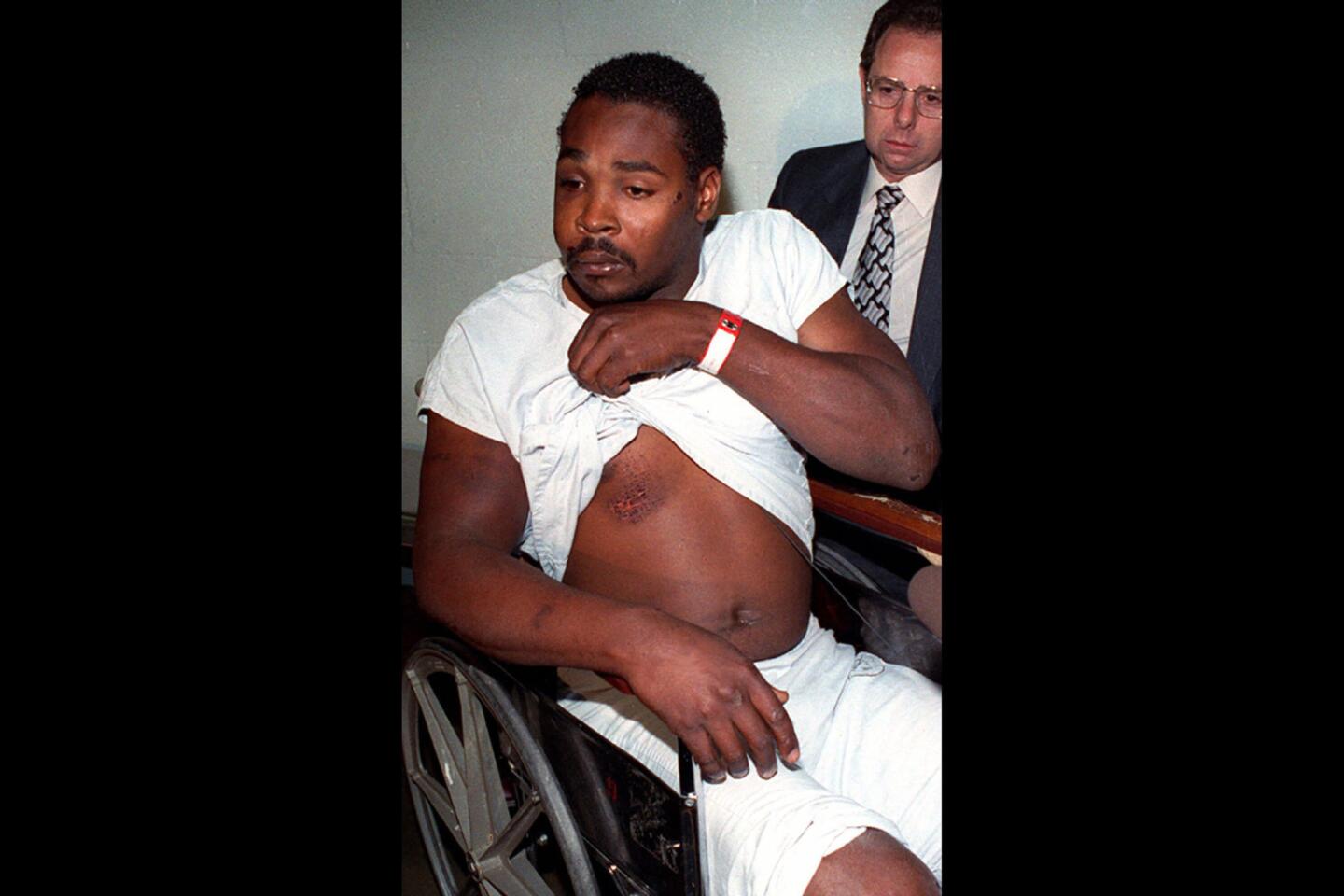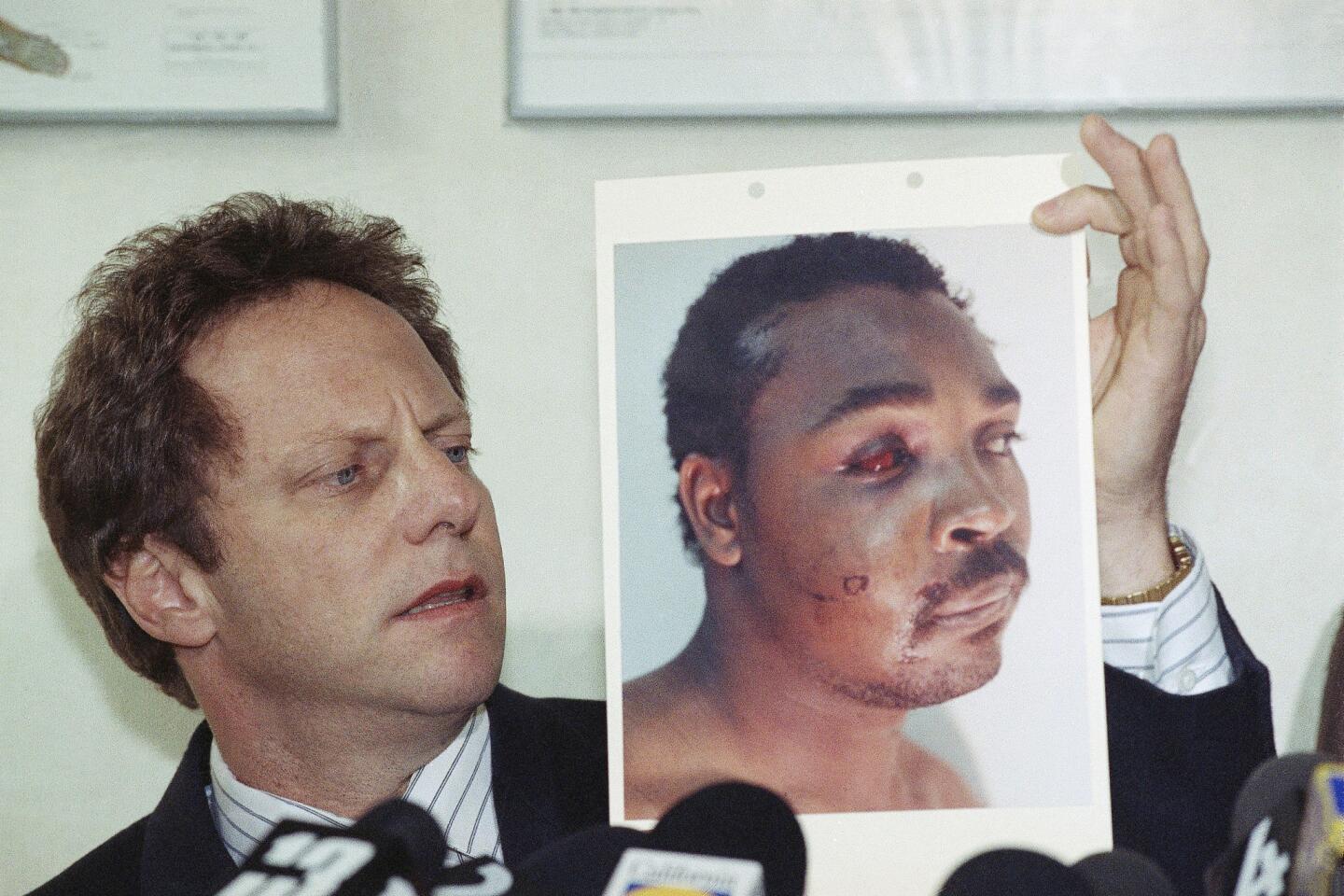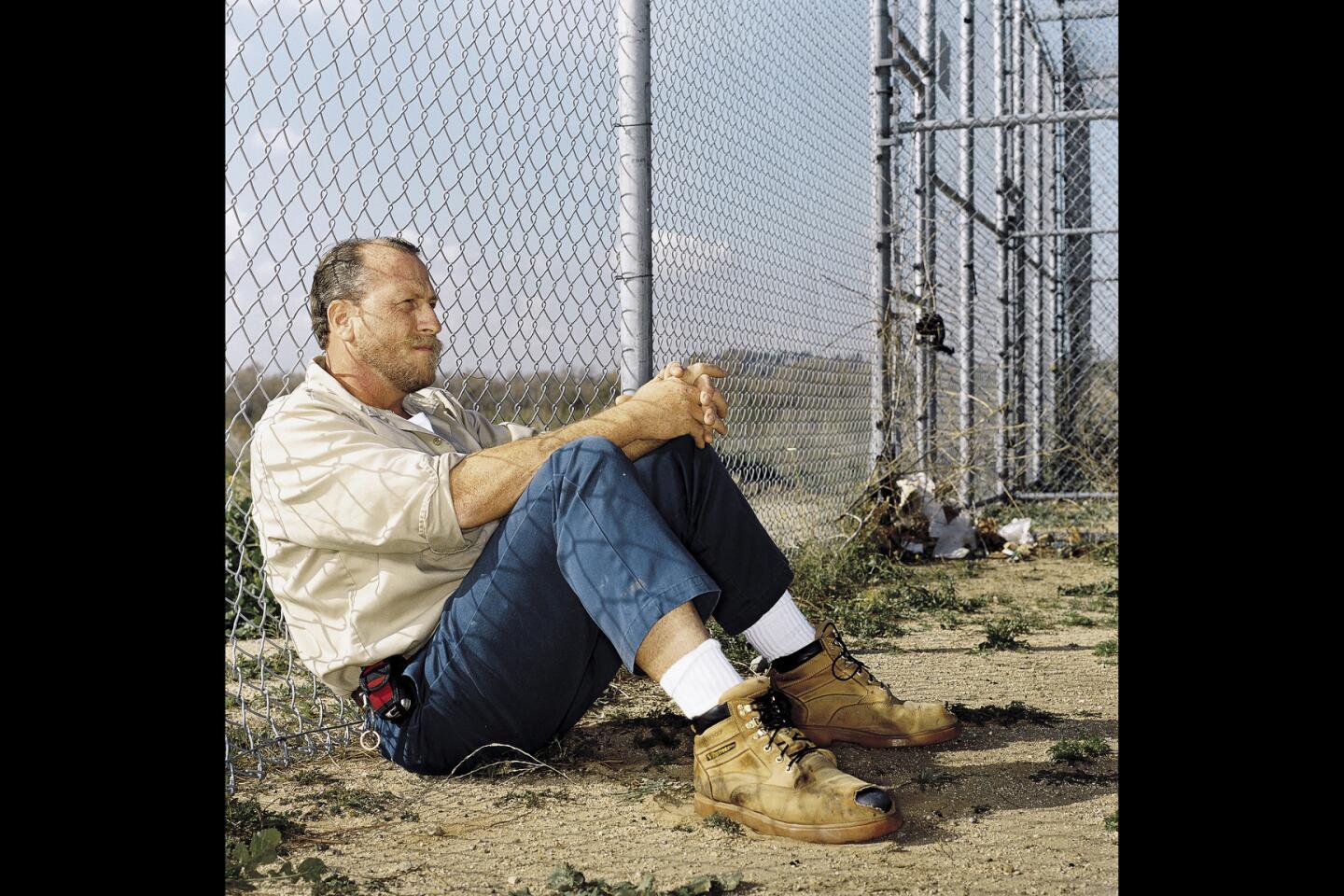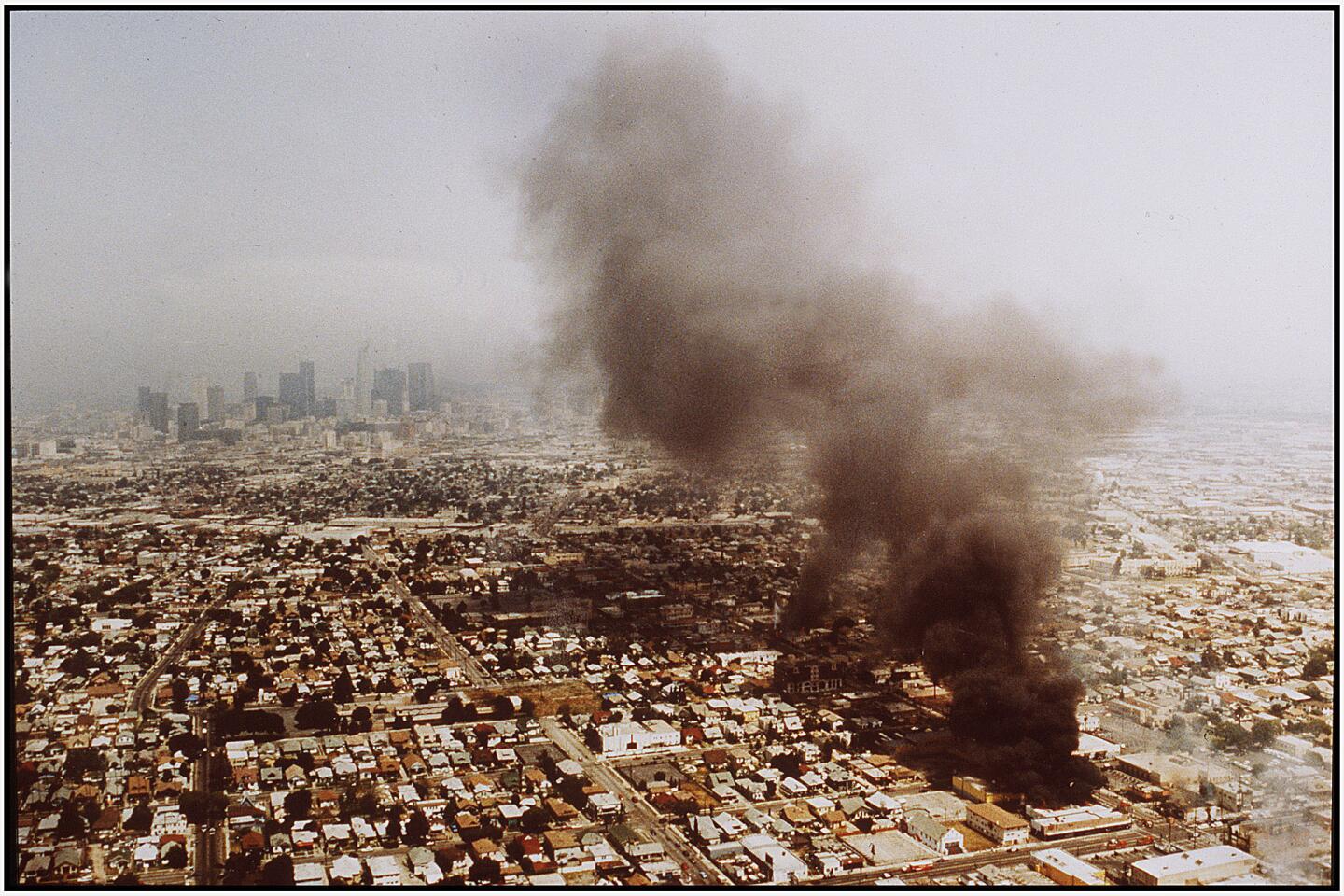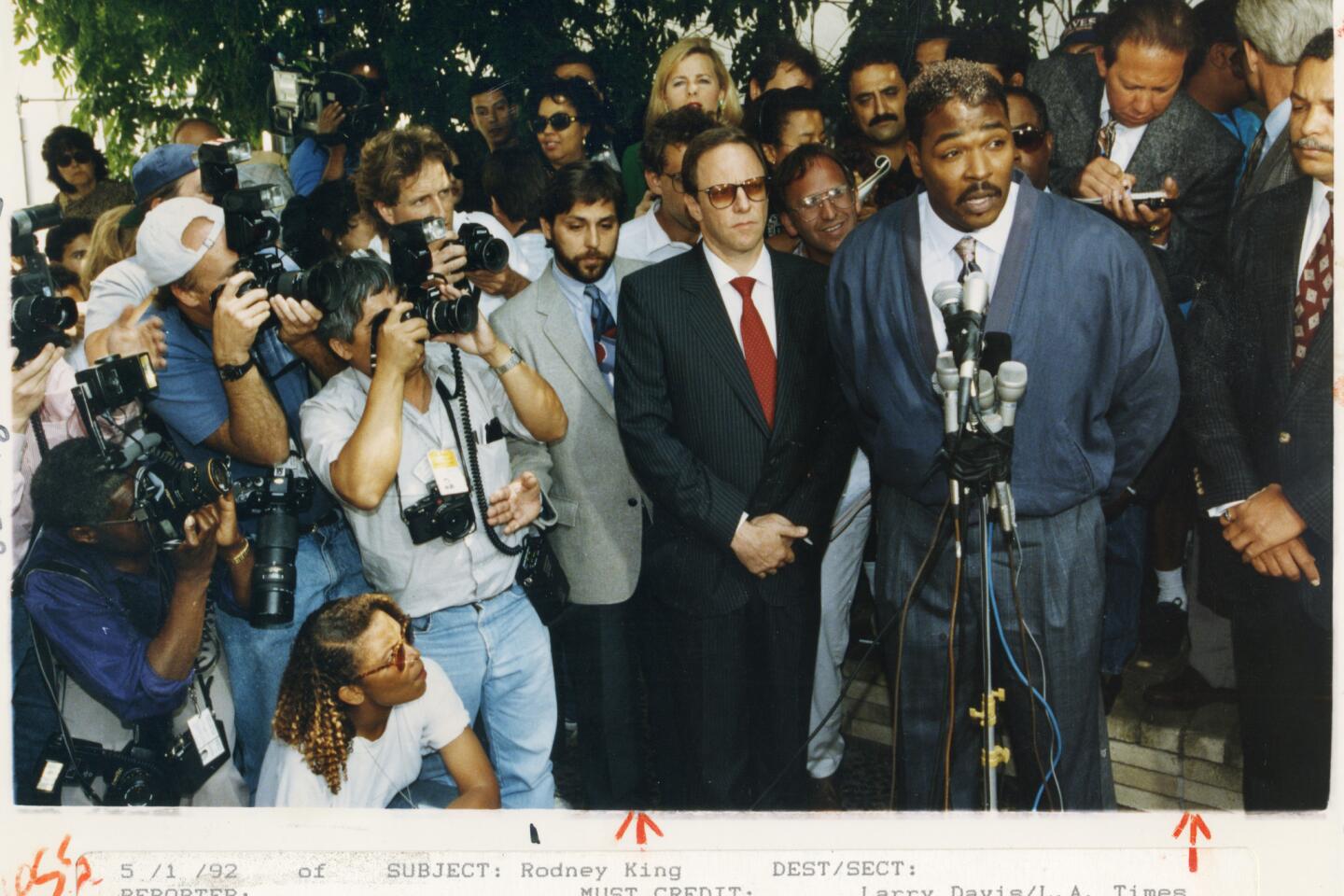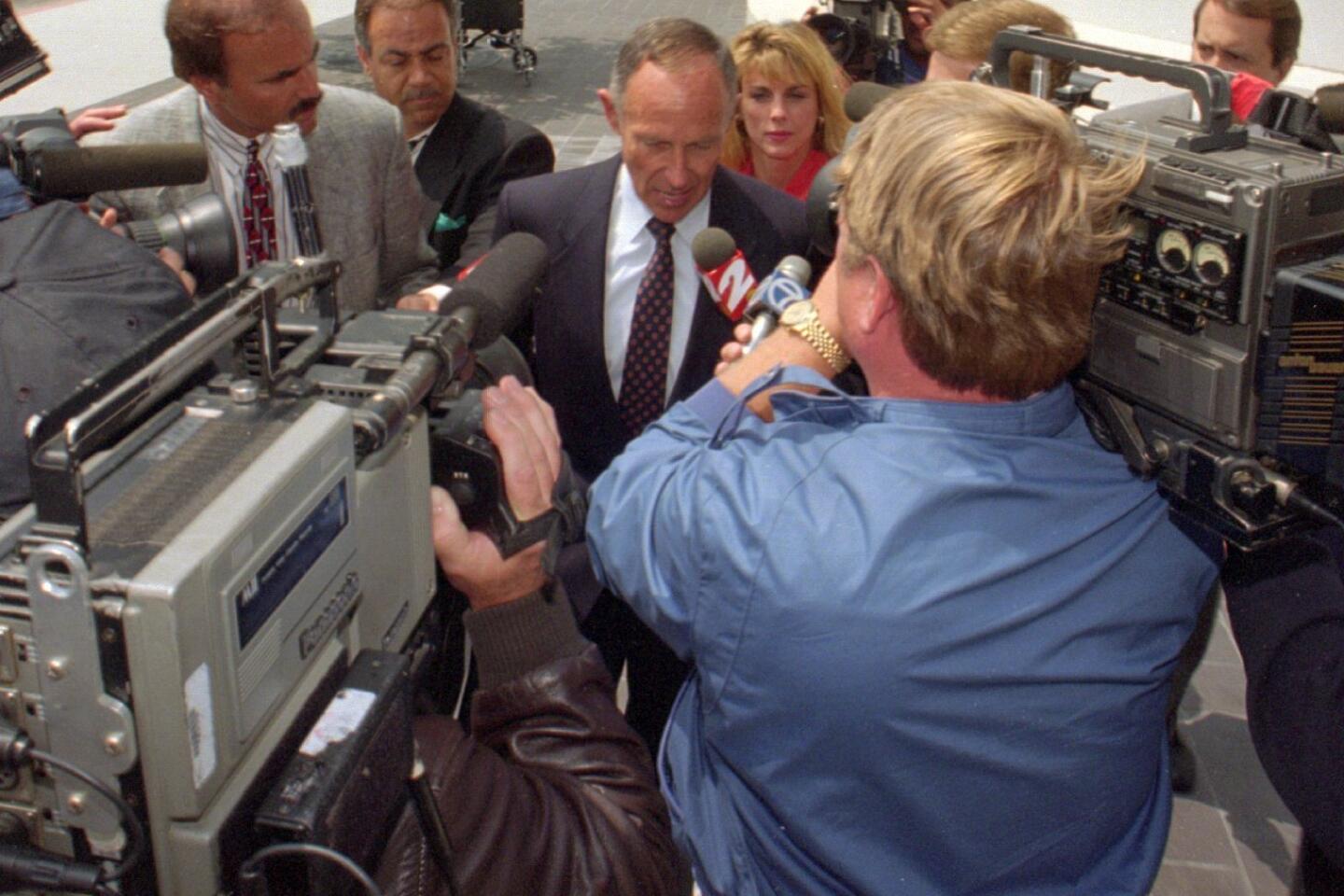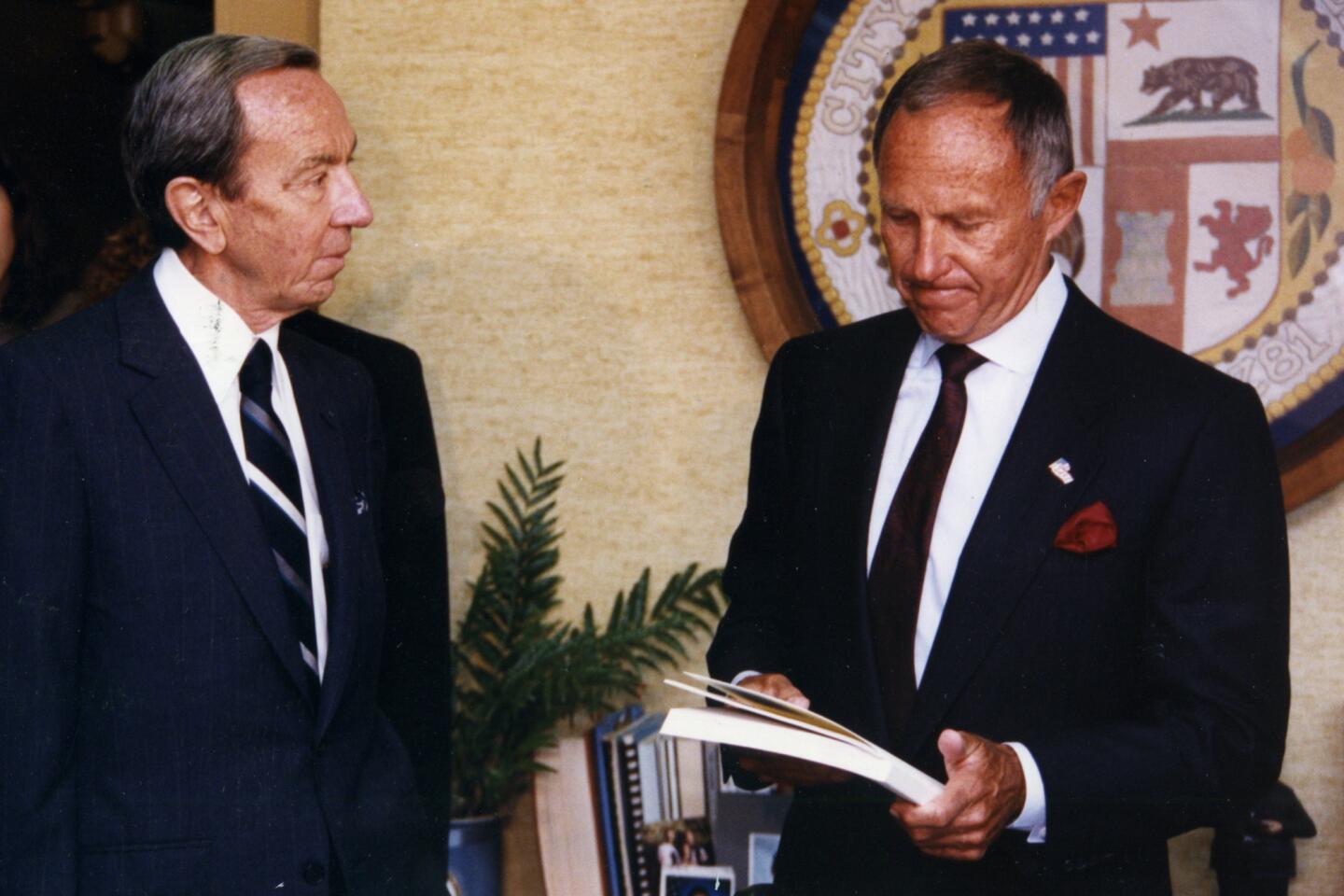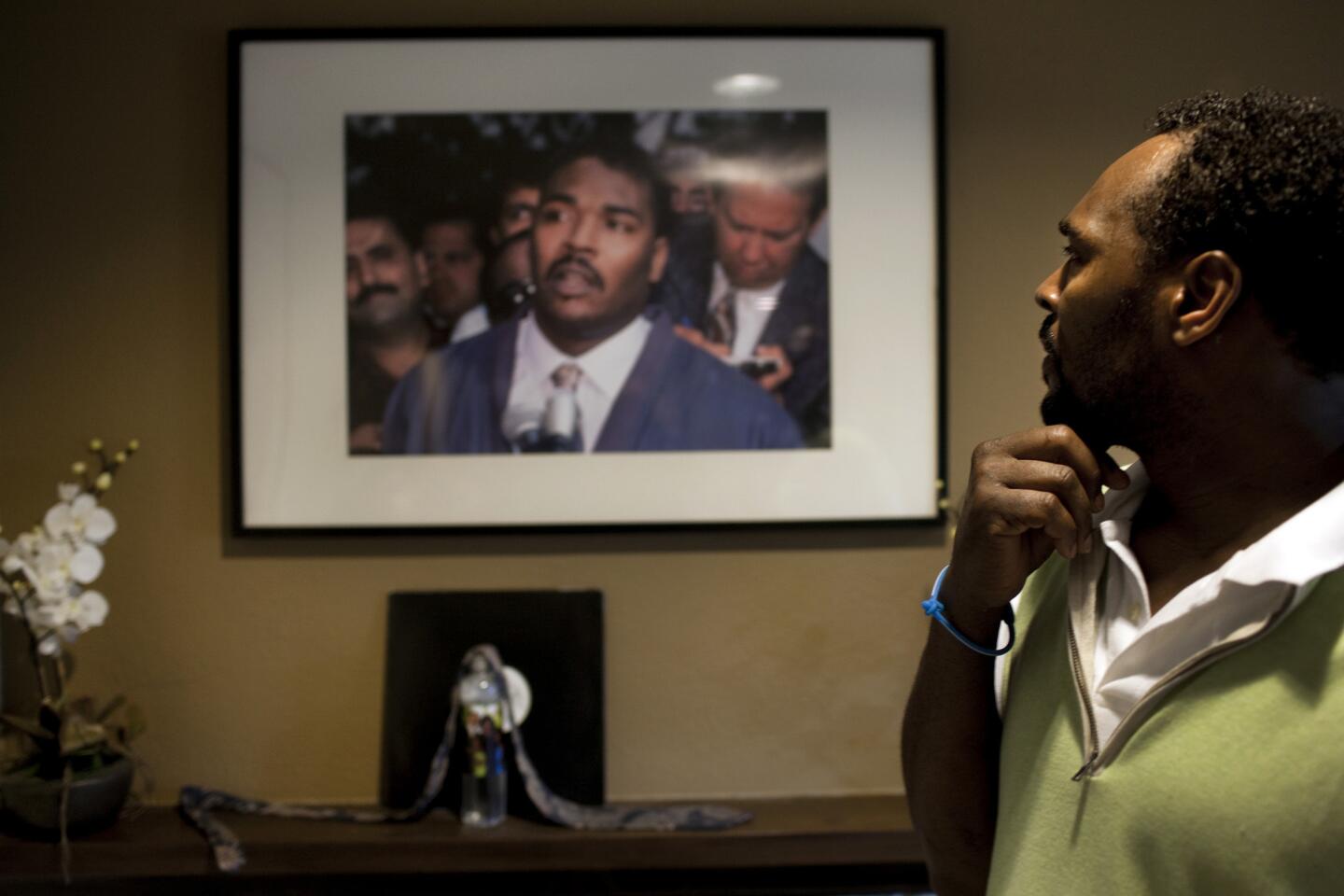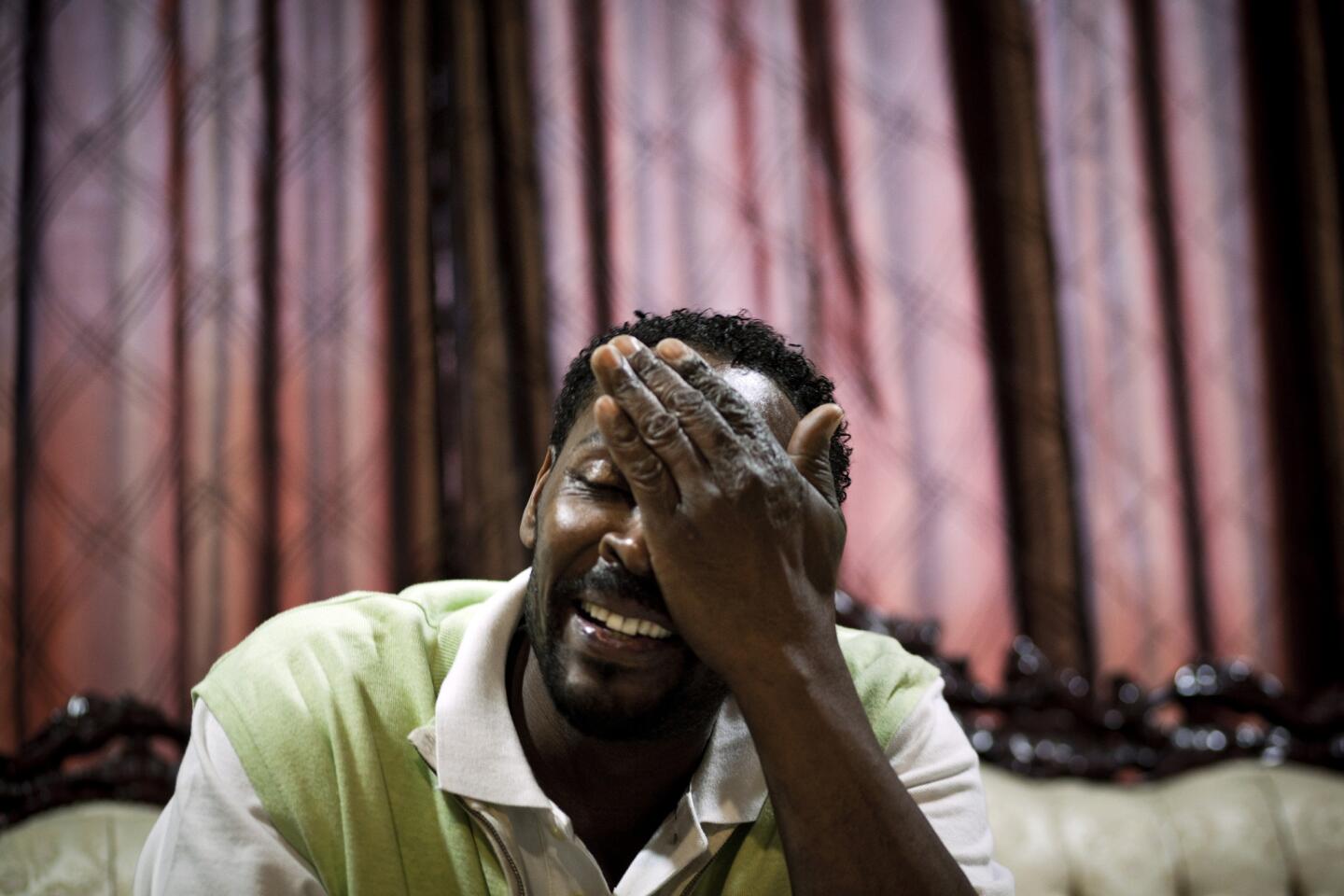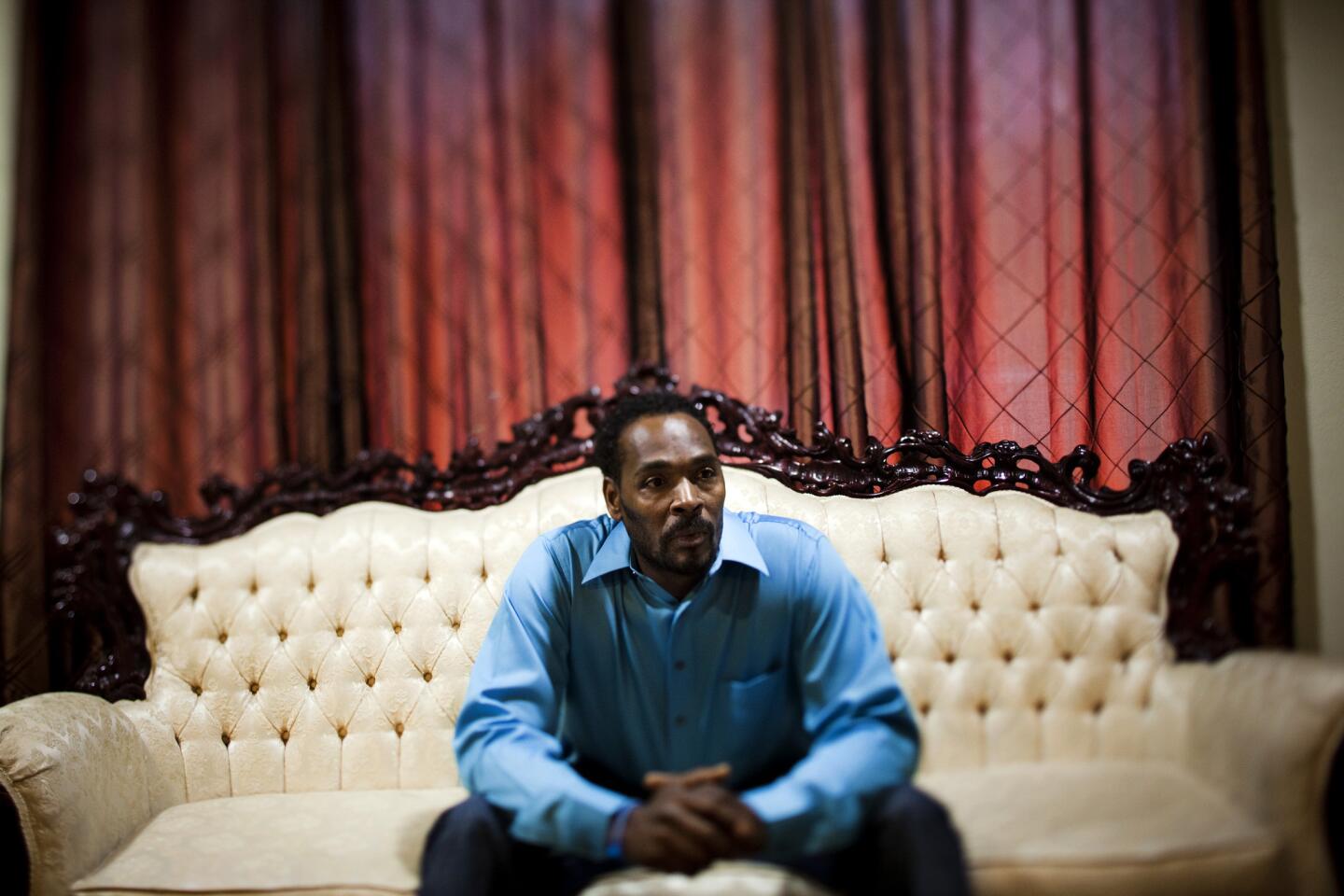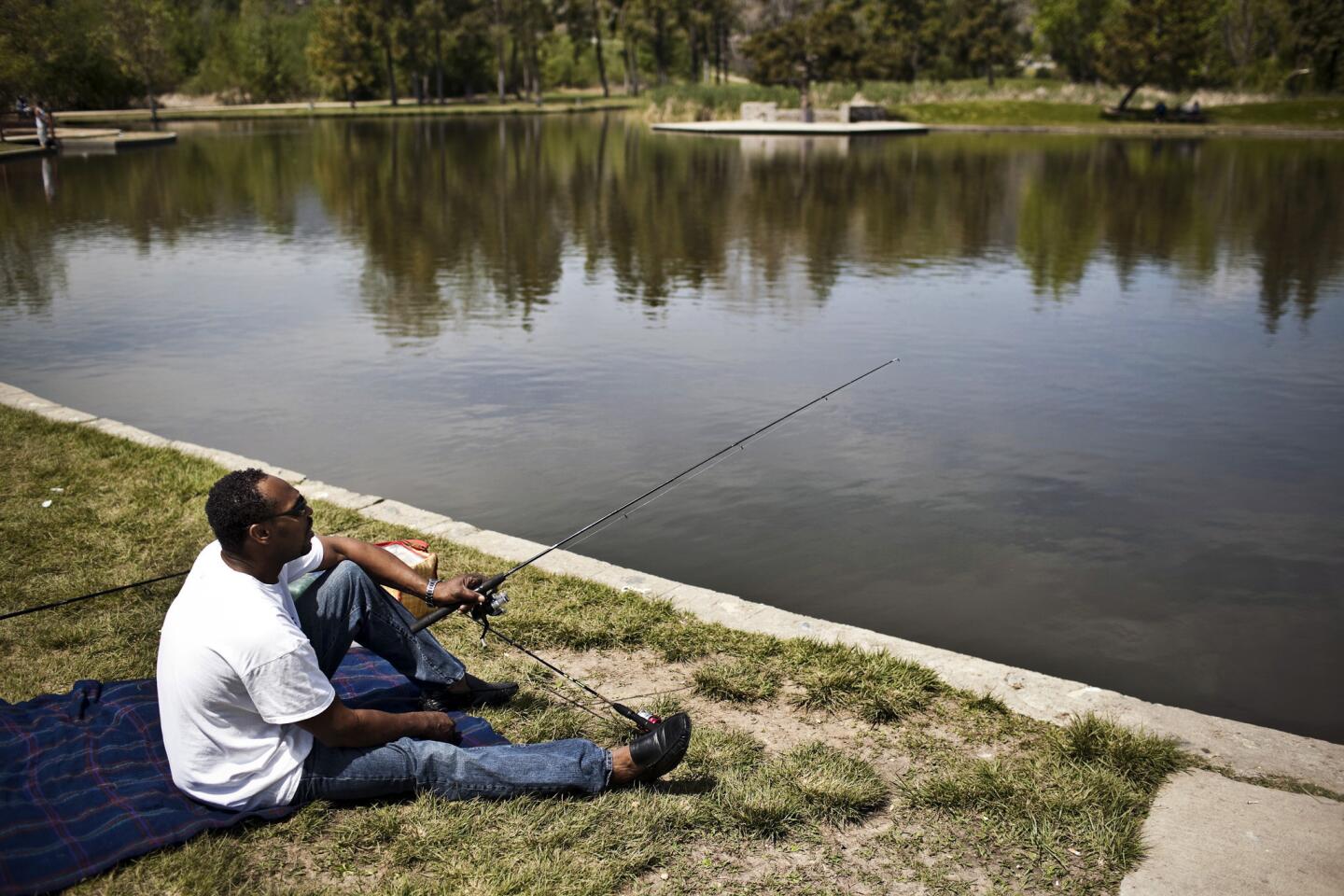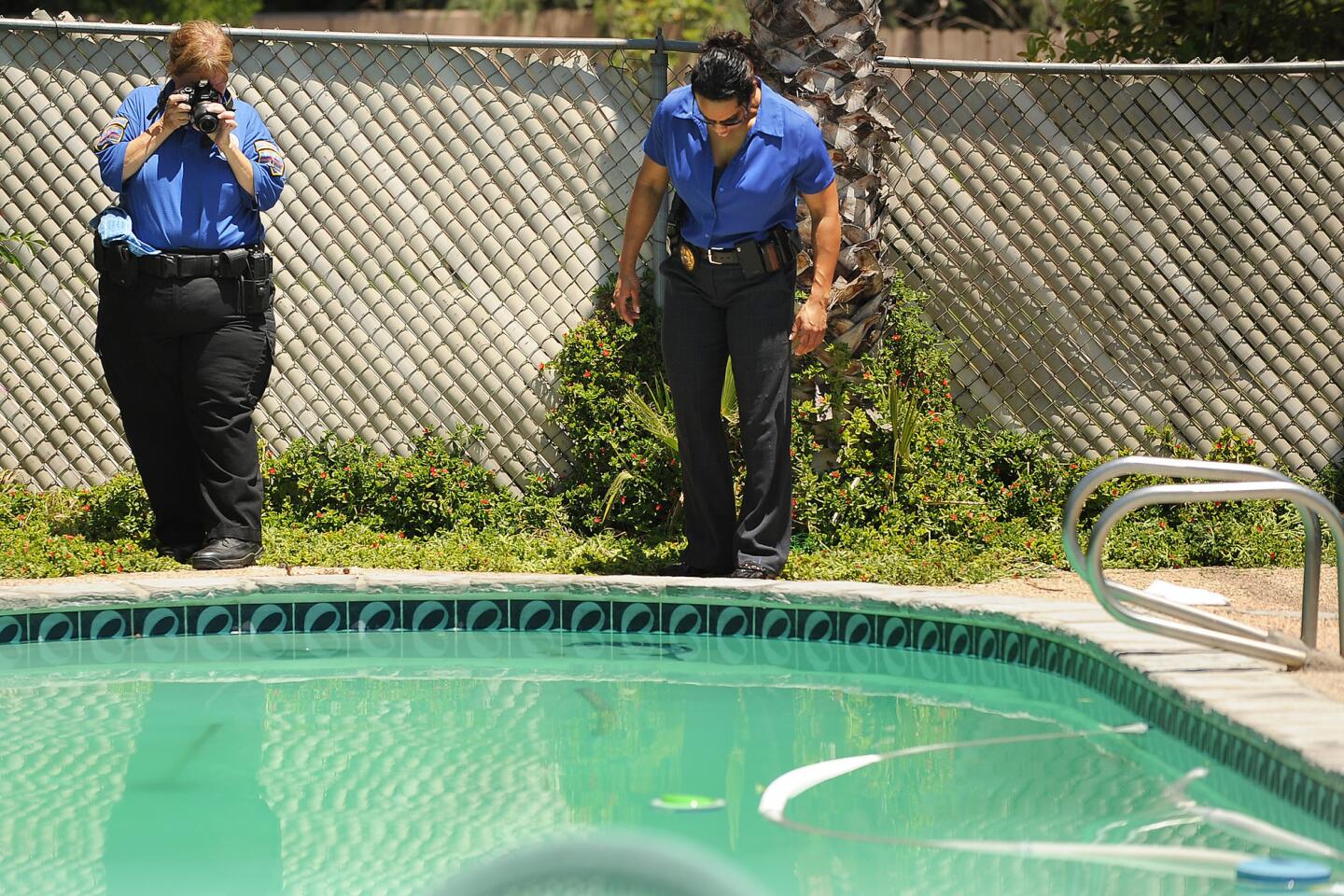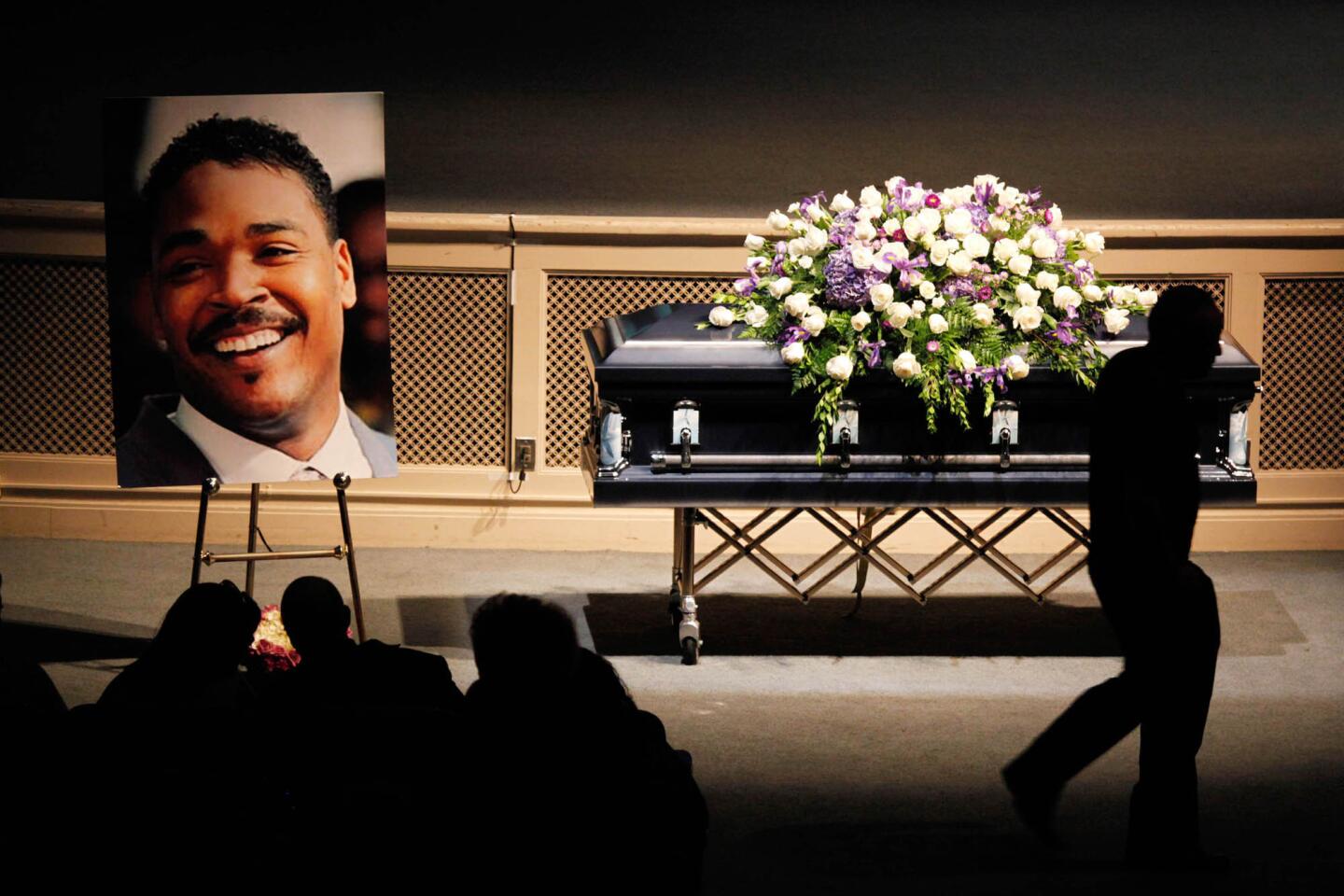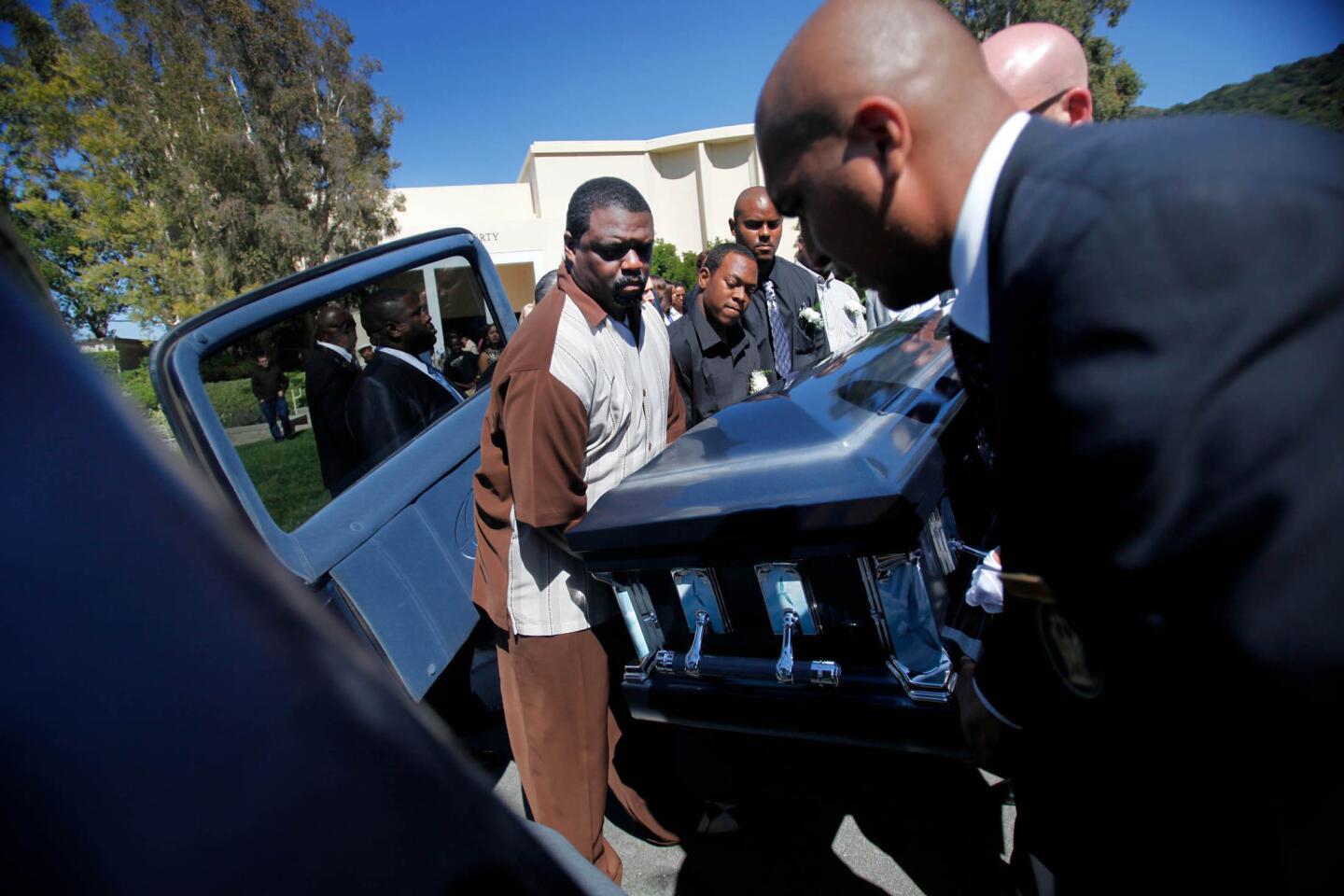From the Archives: Koon, Powell get two and half years in prison
- Share via
A federal judge on Wednesday ordered Officer Laurence M. Powell and Sgt. Stacey C. Koon to spend 2 1/2 years in prison for violating Rodney G. King’s civil rights, a sentence far less than requested by prosecutors and one that brought the wrenching case to a controversial finale.
“The task is not an easy one,” U.S. District Judge John G. Davies said as the long-awaited sentencing hearing opened. “I have tried to treat all of the participants, not as symbols, but as individuals.”
Far from treating the officers as symbols of racism or police brutality--as they often have been cast--Davies described them in warm personal terms, noting that Koon is an Air Force veteran, father of five and a “successful police officer with an extraordinary record.” Powell, Davies added, did not have quite as distinguished a police record, but comes from “a family where he has enjoyed the strong support of his parents and four brothers and sisters.”
In contrast, he blamed King for provoking the incident that set in motion more than two years of civic soul-searching and three days of deadly rioting after Koon, Powell, Theodore J. Briseno and Timothy E. Wind were found not guilty in state court.
Despite requests from federal prosecutors that Powell spend 7 to 9 years in prison and Koon 9 to 10 years, Davies opted for 30 months each. He also rejected requests that the officers be fined and ordered to pay restitution to King. Their only financial penalty was an order that each pay a special court assessment of $50.
Davies, a moderate conservative appointed to the bench by Ronald Reagan in 1986, gave the officers until Sept. 27 to report to the Bureau of Prisons. Although federal prisoners are not eligible for parole, they may receive a 15% reduction in their sentences for good behavior.
Outrage mixed with resignation as news of the sentences swept through Los Angeles. Some worried about possible fallout, while others, particularly in the city’s black community, complained that the officers had been let off too easily for a crime that shocked the city and the world.
Joseph Duff, president of the Los Angeles Chapter of the National Assn. for the Advancement of Colored People, spoke for many when he said: “This is a travesty of justice as opposed to a measure of justice.”
Erik Rasmussen, one of the jurors in the trial, criticized the sentences as too lenient, saying the officers deserved prison terms of between five and seven years.
“I didn’t think the punishment fit the crime,” said Rasmussen, a welder from Fullerton, who took the day off to watch the sentencing on television.
With emotions charged over the sentencing, the LAPD went on tactical alert at 7 a.m. Wednesday, with all plainclothes detectives ordered to report in uniform and all shifts continuing several hours past their usual end. By 4 p.m., the alert was lowered to “a modified tactical alert,” said press relations officer Don Cox, who described the city as “very quiet” as of early evening.
Cox said he expected no extraordinary police efforts other than “an increased awareness.”
In a live television address to the city just minutes after the sentences were imposed, Mayor Richard Riordan called on residents to put the long case behind them. “The judicial system worked,” Riordan said, “maybe not the way that many of us would like it to have worked, but it did work.”
In fact, the sentences pleased few people, with critics of the officers angrily denouncing them as unfairly lenient and supporters bemoaning that Powell and Koon will be forced to go to prison. The mood was somber at Parker Center, the police headquarters, as officers worried about the fate that awaited their colleagues behind bars.
“There’s no elation,” one officer said. “They’re going to the joint.”
Lawyers for Koon and Powell had argued that the two men deserved to spend less than a year in prison or to receive probation.
“It is harsh,” Michael P. Stone, the lawyer for Powell, said of the sentences. “But it is harsh because the law requires it.”
In court, Koon was typically unfazed, standing erect at the podium as Judge Davies formally imposed the sentence. Powell, however, was ashen and his voice wavered when he spoke briefly to answer a question from Davies. Behind him, Powell’s mother, sister and girlfriend sobbed openly as his sentence was handed down.
They left the courtroom without commenting, shielded from the press by U.S. marshals who escorted the family out of the building.
Even before the hearing was over, prosecutors were hinting that they might appeal the sentence. Assistant U.S. Atty. Steven D. Clymer, one of two lead prosecutors, guardedly responded to a question from Davies by noting that he would not make any statement that might jeopardize the government’s appellate rights.
Later, U.S. Atty. Terree A. Bowers delivered a short statement indicating the government’s dissatisfaction with the sentences.
“The government, in its sentencing memorandum, argued that the sentencing guidelines mandated substantially higher prison terms for both defendants,” Bowers said. “We are disappointed by the downward departures imposed today.”
Bowers added that the U.S. attorney’s office would consult with the attorney general and the solicitor general to decide whether an appeal was warranted. That process is expected to take several days, as the prosecutors will first want to review Davies’ written sentencing memorandum, which the judge released late Wednesday.
In providing his rationale for the sentences, Davies issued a series of controversial legal findings about the case. He methodically reviewed the incident during a hearing that lasted more than three hours, accepting much of the defense’s version of the beating and leveling particularly strong criticism at King, who he said provoked the officers’ initial actions.
Although Davies acknowledged that the jury had found the officers violated King’s rights, he concluded that only the final six or so baton blows by Powell were unlawful. The first 55 seconds of the videotaped portion of the incident, during which the vast majority of the blows were delivered, was within the law because the officers were attempting to subdue a suspect who was resisting efforts to take him into custody, Davies concluded.
King’s provocative conduct began with his “remarkable consumption of alcoholic beverage” and continued through a high-speed chase, refusal to submit to police orders and an aggressive charge toward Powell, Davies said.
Only after 55 seconds and several dozen blows did King finally succumb, Davies found, and only then did Powell’s strikes become excessive. King appeared compliant at 55 seconds and only moved again after Briseno stomped on his upper back, Davies said.
From that point on, Davies counted approximately six blows delivered by Powell. Those blows, the judge said, were illegal, and both Powell and Koon were punished based on them and only them.
The judge also noted that Wind, who was acquitted by the federal jury, delivered several blows to King during the illegal portion of the beating. Wind, who is a close friend of Koon, was in court for much of Wednesday’s packed hearing, sitting in the back row with his head bowed.
In contrast to his unflattering description of King’s actions, Davies made several findings that supported the officers’ versions of events. At one point, he noted that although Powell struck King in the head or face with his baton during the opening seconds of the videotape--a blow that Powell has always denied--Davies said the blow was aimed for another part of King’s body.
Davies did not say how he knew where that blow was aimed, but in his written memorandum he said he concluded it was an unintentional blow to the head because “Officer Powell never clearly applied force to Mr. King’s head again, although he had ample opportunity to do so.”
A government expert had testified that King was struck three to four times in the head with direct blows. Davies did not refer to that testimony in his oral or written findings.
“I think the judge’s findings are nothing short of a total vindication of the defense,” said Stone, Powell’s lawyer. “The average person . . . will be surprised to find that Rodney King was a big factor in this incident.”
As Davies recited his findings, King’s lawyer, Milton Grimes, shook his head slowly. “We expected a longer time,” Grimes said later, speaking for himself and his client, whom he consulted immediately after the hearing. “But we are thankful that there was some imprisonment.”
Davies arrived at his sentences only after departing substantially from the prison terms called for under federal sentencing guidelines. Davies agreed with prosecutors that the officers had committed an aggravated assault and had used a dangerous weapon. But because of his finding that the first 55 seconds of the beating was lawful, Davies rejected the prosecution’s contention that King suffered serious bodily injury during the unlawful portion of the beating.
Davies also rejected the government’s argument that Koon should suffer special punishment for allegedly lying on the stand.
Still, Davies’ calculation of the prescribed sentences for both officers under the federal guidelines came to between 70 and 87 months--roughly six to seven years.
From there, however, Davies whittled away at the sentences. He shaved the biggest piece off the sentences because of King’s conduct, then cut the punishments again because of several factors, including the fact that the officers will almost certainly lose their LAPD jobs and because they have been forced to stand trial twice for their actions.
Although Davies acknowledged that the federal government had the right to indict the officers after a state court jury found them not guilty, he said the second trial was unusual and the officers had suffered because of it.
“The second prosecution has the specter of unfairness,” Davies said, adding that the state and federal governments should have worked together before proceeding with the state case in 1991.
Legal experts said Davies could be vulnerable on that point because U.S. Justice Department policy strictly lays out the government’s procedures for trying criminal defendants who already have faced state charges. No one has alleged that those policies were violated in this case.
In court, prosecutor Clymer defended the policy and said the case against the officers was handled in exactly the same way as hundreds of other federal prosecutions. He complained that Davies’ decision to credit the officers for having been tried previously was “at best dubious.”
One point that prosecutors prevailed on was the issue of whether the defendants should be imprisoned while they appeal their convictions. Prosecutors argued that Davies was obligated to order the defendants imprisoned because they committed crimes of violence, and federal law requires that they not be allowed to remain free on bail unless they meet specific criteria.
Davies ordered a 45-minute lunch recess while he considered that question. After returning, he announced that he agreed with the prosecution on that point.
Defense lawyers continued to press their point, urging Davies to take note of the fact that Koon has a family to support and that appeals could take years, meaning that the two officers could serve most of their sentences before they ever get a ruling from a higher court.
“There is no doubt that the situation of each defendant is fraught with sympathy,” Davies said. “There is no doubt about that. But the court is bound by law.”
Davies ordered Koon and Powell to surrender to the Bureau of Prisons on or before Sept. 27. Their lawyers said they will ask the U.S. 9th Circuit Court of Appeals to postpone that surrender date until after the appellate court reviews Davies’ decision to deny them bail while they appeal their convictions.
That process begins next week, even as the next chapter in the long King saga reopens in none other than Davies’ court. Davies also is hearing King’s lawsuit against the officers and the city of Los Angeles. Hearings in that case have been on hold while the criminal case proceeded.
Now that it is concluded, lawyers for King and the officers have been asked to appear before Davies on Monday.
More to Read
Sign up for Essential California
The most important California stories and recommendations in your inbox every morning.
You may occasionally receive promotional content from the Los Angeles Times.
